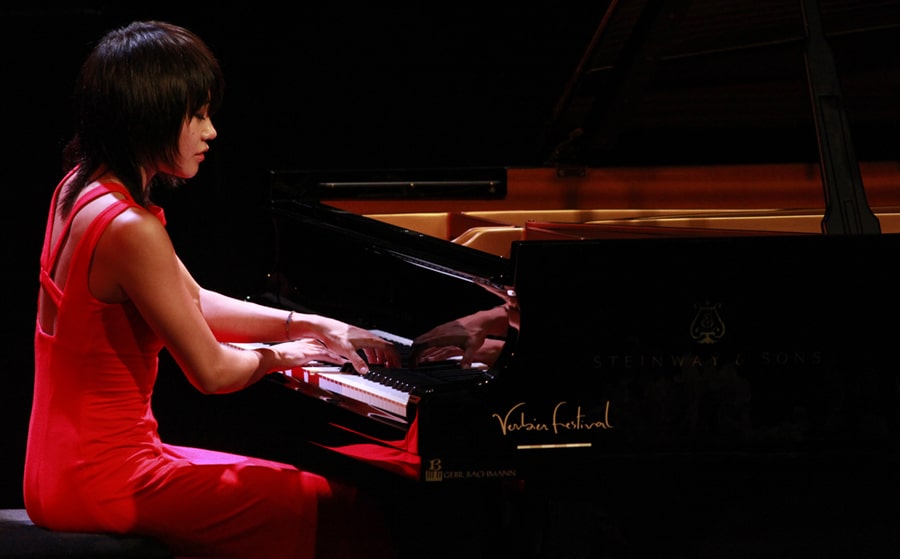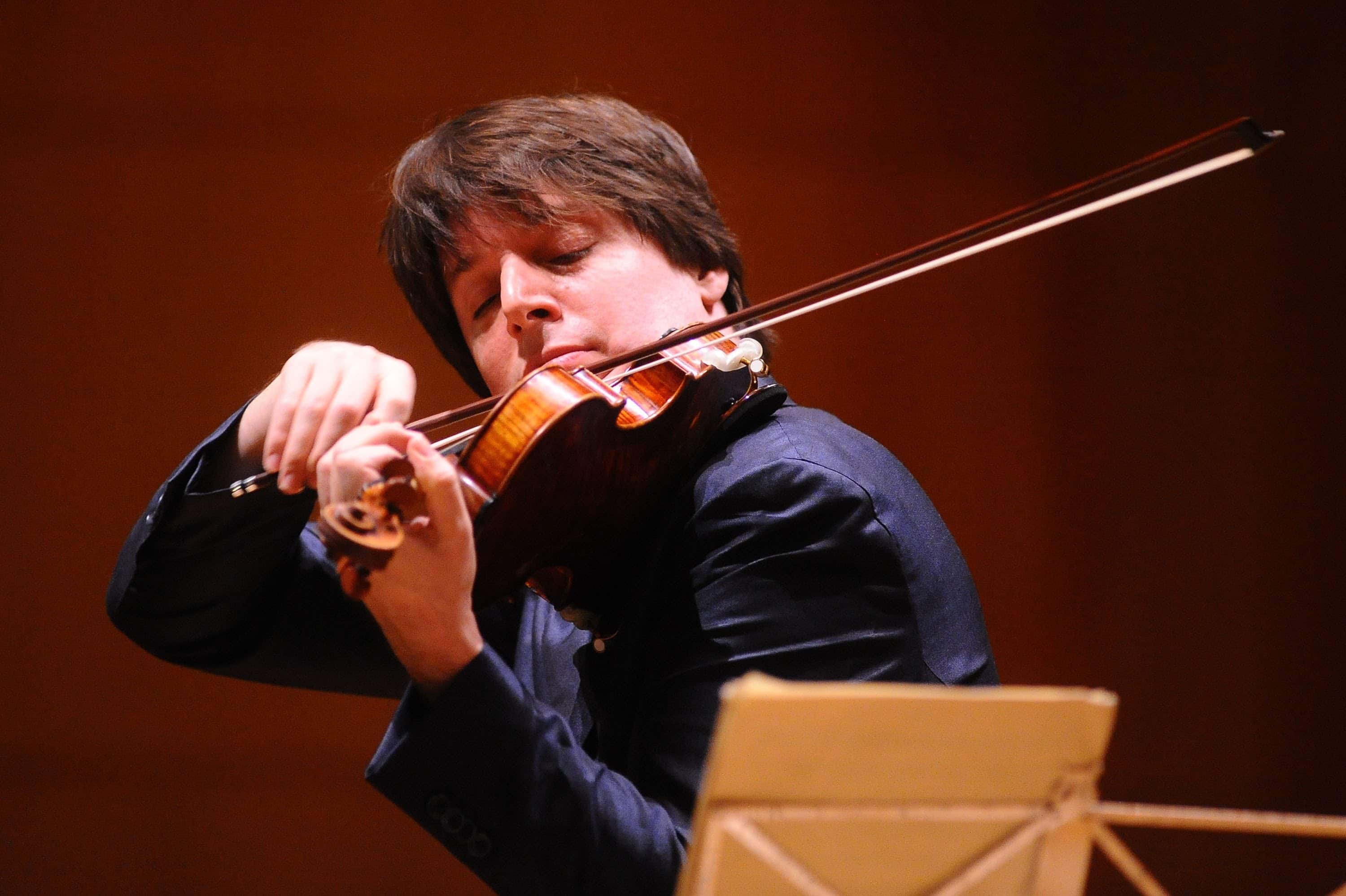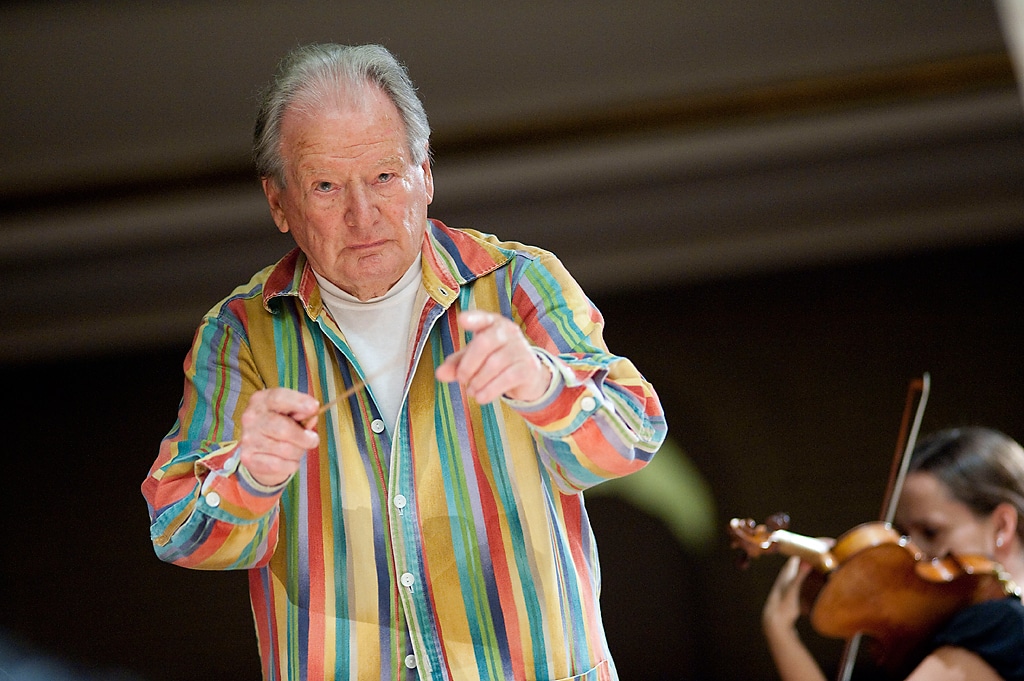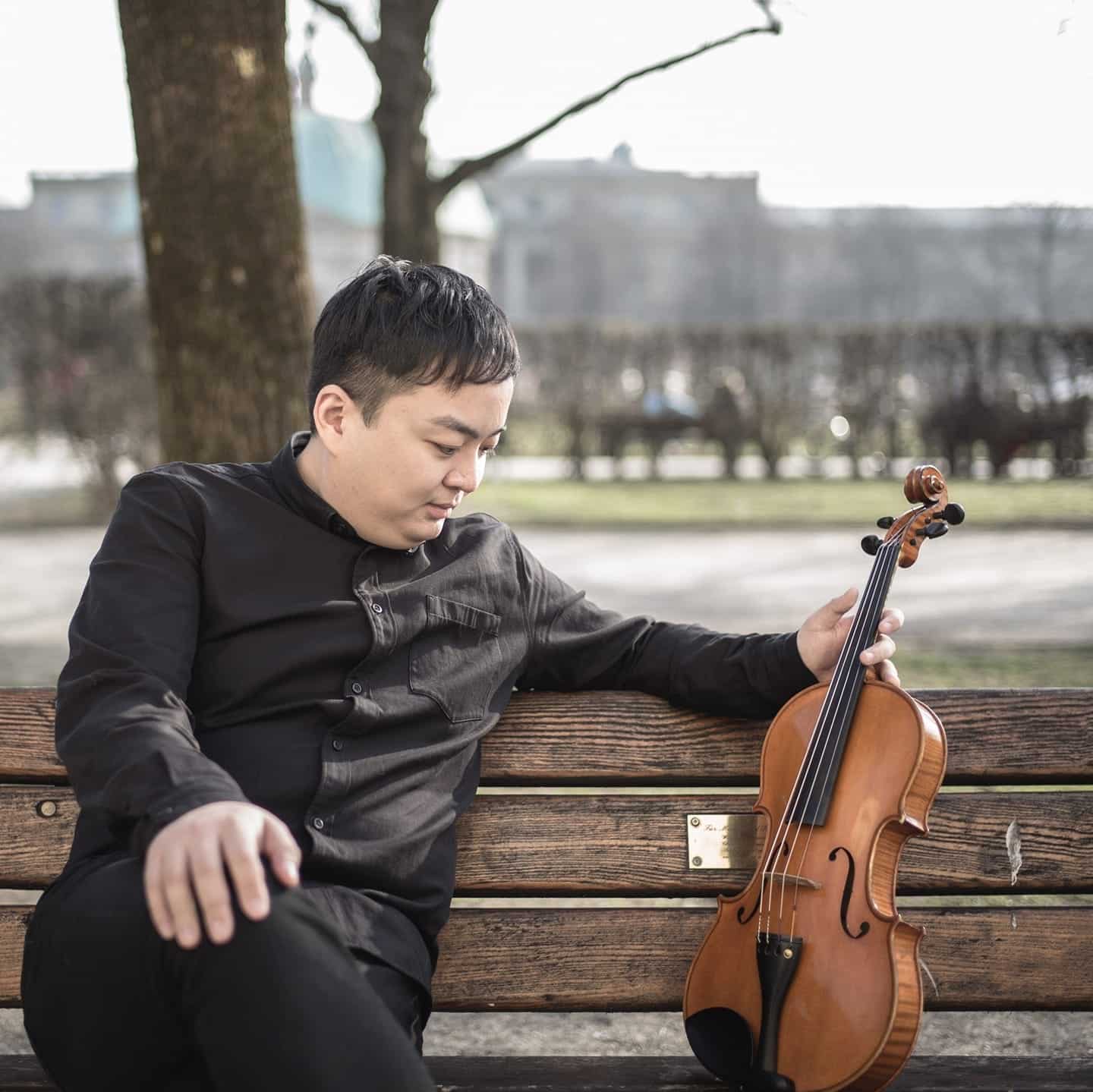Another US orchestra takes steep pay cut.
mainIt’s Utah, and it saves $1.1 million off the payroll over three years. From the local report, it sounds fairly amicable.
It’s Utah, and it saves $1.1 million off the payroll over three years. From the local report, it sounds fairly amicable.
More details are emerging of the events in…

The violinist Joshua Bell has been renewed as…

Neville arrived late for lunch at our favourite…

The orchestra today granted tenure, after two years’…

Session expired
Please log in again. The login page will open in a new tab. After logging in you can close it and return to this page.
What is not clear from the newspaper article is whether back-office executive staff members’ salaries are effected or fees of conductors and soloists.
I can guarantee you that the crunch is being felt ‘upstairs’ to the extent that staff are permanently laid off (made redundant). That’s been the norm everywhere in the mid level orchestras recently. It’s just among those top dogs who consider themselves (along with their fawning entourage) ‘rock stars’ that are still cashing in big time, along with all the soloists and conductors of the flowing hair and airbrushed photo (and little talent aside from marketing).
Although many orchestras find themselves stranded as a result of the decline of donors and their money, this is only Act One. Act Two will arrive as nature begins to take its course when orchestra patrons “age out of the system,” so to speak. Why aren’t orchestras shaking in their boots at the thought? And why aren’t they doing anything to ensure that there may be enough people in the future who actually care about Mozart and Brahms, much less music of the 20 and 21st centuries to fund their ventures?
Personally, I think any orchestra that isn’t seriously re-thinking why it is there in the first place and doing something to justify its own existence deserves to have its plug pulled and that its special pleading for money to fund more mediocre performances of the same handful of standards played by clearly bored, unhappy, and uninterested orchestral musicians and overpaid star soloists is just shameful.
We clearly have too many orchestras that perform to no purpose, and since many of them can’t even support themselves, maybe they should just go. Now would be a good time.
Dan P.
“Musicians aren’t the only ones who have undergone austerity measures. The US | UO’s $19.5 million budget was cut by $1.1 million with a staff hiring freeze, $300,000 in staff salary and benefits cuts, and even a $45,000 contribution by Fischer. Those measures were implemented in response to a $950,000 deficit at the end of the 2010-2011 season.”
Sounds like it’s shared sacrifice.
Sorry Dan P, but you are mistaken if you think orchestras everywhere aren’t trying to figure out how to evolve and stay relevant in today’s society. Unfortunately it’s much easier for orchestras with large budgets to do so. And you are also mistaken that orchestras perform to no purpose. The extent to which orchestras and art organizations in general contribute to our local economies, our local education systems, and our local cultural landscapes is greatly under-recognized. We teach, we perform, we entertain, we educate. We draw people downtown where they spend money on dinner, drinks, tickets, parking, shopping. Concert goers put money into local tax systems, support local businesses, and add vibrancy to downtown and cultural areas. We pay taxes, we buy goods and pay for services, individually and as a company. But I’m so happy to hear that you’d like to show us to the door. Fantastic! That’s clearly the solution!
I think the effort to “evolve and stay relevant” is terribly misguided and doomed to fail. The orchestra and its repertoire are already relevant PRECISELY because of what they are. Relevance does not mean simplifying programming, performing earlier and shorter concerts, using the orchestra as back-up band for pop acts, and presenting endless “Joys of Christmas” productions. Exactly what does this hope to accomplish?
But, you both missed and proved my point. You say I’m mistaken to say that orchestras perform without any conception of a purpose, but your response is that orchestras contribute to local economies. This is NOT the purpose of the orchestra. You say “we teach, we perform, we entertain, we educate.” This sounds like a cut and paste from an application for local arts counsel funding. Tell me, what do you think the significance is of great music?
And let me ask this: Say you want to convey what is so important about Shakespeare to a large group of students. Now you could put, say, Othello, into simplified English with lots of current slang and, perhaps, include a racy picture of Desdemona in her last moments, or you could first try to give that student the formative education and the reading skills needed to begin to relate to it. Which makes the most sense?
Orchestras originally flourished because there was a critical mass of people for whom music was a necessity. Why was that? Because they learned the repertoire at home, in school, and socially through chamber music by – yes – actually playing. Most of them probably weren’t especially good at it, but they learned it and learned to love it. It was a part of their lives and their culture and the culture of musical art. Not everyone, certainly, but a critical mass.
Of course, that culture no longer really exists, but why can’t it be replicated to some degree? Perhaps instead of donating big bucks to yet one more mediocre orchestra, why not put that money into serious school music programs. And if performers really do care so much about music, why don’t they, instead of whining about the state of their profession, perform in schools regularly and engage the broad population of young people in the experience – especially before the kids learn to disdain it from their peers? Cheap instruments for the kiddies don’t cost all that much – and money can be raised for the purpose. And if performing musicians sat amidst a group of kids and actually talked to them and answered their questions, perhaps THEN, musicians might learn how to articulate from their own heart and mind the significance of music. They might also have their future audience and their support.
This won’t do much for the immediate situation, nature will certainly take it’s course. But after that happens, if a few people still care, maybe they will think about how to go about bringing it back.
Dan P.
“Relevance does not mean simplifying programming, performing earlier and shorter concerts, using the orchestra as back-up band for pop acts, and presenting endless “Joys of Christmas” productions.”
I couldn’t agree more. What I was thinking of when I wrote that was some of the more technological things that orchestras are doing…Berlin with the Digital Concert Hall, The Met in HD Broadcasts, etc…obviously not all orchestras can and should do those types of things.
“And if performers really do care so much about music, why don’t they, instead of whining about the state of their profession, perform in schools regularly and engage the broad population of young people in the experience…”
I’m not entirely sure why you think musicians AREN’T already doing this. I don’t have time to write a lot right this sec about how much musicians do, but I do wish to say that unfortunately professional orchestral musicians doing outreach in schools etc can’t replace school music/arts programs. And I do agree that missing school programs is part of the cultural problem. My grandparents learned to read music as part of their school, it was just how it was then, now….obviously not so much.
I really have to go, but do want to add that every city, town, every state, benefits from having a local orchestra, and it doesn’t matter if it’s mediocre or not.
And in terms of what the significance of great music is, there’s a discussion for another time. 🙂
I have been working with educational programs for a second-tier, fully professional orchestra in a community of about 100,000 population. We arranged about 30 masterclasses for the secondary schools, but the individual students were uncomfortable with the masterclass format, having to play solo in front of their peers. The board of education has chopped all funding for future music programs, and the students themselves, from my experience, have already developed a serious allergy to classical music. The teachers have informed us that they have essentially given up promoting classical music. Rock music is the sole musical language of this generation.
I believe that the situation is better in the larger North American cities, with large populations of European and Asian backgrounds, places where classical music is popular, and even growing in popularity.
Annie – I agree. Berlin’s digital streaming is great and the live broadcasts at movie houses that the Met does are really incredible, but I don’t think that really solves the underlying problem. That problem is bringing kids into and a sense of participation of our culture – which, let’s face it, schools don’t really do anymore. Even when it comes to teaching history or literature. It’s becoming rare and rarer in college as more and more of them concentrate their resources on occupation-focused education.
As for musicians participating in school music events, look, I realize (1) how busy any musicians is and (2) that some certainly do play in school-related performances. I’ve been a performing musician since I was in grammer school and a teacher for much of my life. And, my life has been lived mostly among other musicians and composers. However, I don’t think most musicians really get it as to how close to the precipace we are to losing what is left of what we have and if we don’t think this through and do something constructive, we will lose it. Nothing is permanent. This is why I think both performing musicians, teachers, and the big money should be focused right now on pushing our way back into the schools. Mr. Lobb suggested the lack of success of his program was the fact that the students involved were neither European or Asian. I disagree. Look what they did in Venezuela! They not only got young kids to love music, they created fabulous orchestra made up of these young kids. All they had to do is to think it through and do it. They did, and they did.
And as for the significance of great music 🙂 well, I’m sure everyone will have there own take on it, but I think it at least starts with knowing that you’re face to face with something greater than oneself.
Dan P.
Mr. Lobb – Let me ask you this: Why would young kids really want to be critiqued in front of their friends? Why would non-musician kids be interested in a masterclass? And finally, what were these masterclasses intended to impart? Did anyone talk to the kids beforehand to find out if it was a good idea? I’m willing to bet that this project came out of a group of well meaning people who had no idea how to interact with kids, spark their curiosity, to get them to open up to new things. And that’s not a put down. Teaching kids is not an amateur activity. It takes great skill, a talent for it, and the ability to tune into people. Without that, forget it. Kids don’t like being talked at or maneuvered into iffy situations.
The reason why anyone is interested in ANY kind of music is because it’s fun, it’s exhilarating, it takes you over. On any day you can find even the most self-conscious teen walking down the street, plugged into an iPod moving to the music without a thought about who sees them. Classical music can do that too. No question. The question is – how do you provide that connection between the kid and the music. Unless you’ve thought that out, you’ll fail.
How do you get a kid interested in reading? By explaining the rules of grammar and publicly critiquing their speaking skills? No. You tell them stories, you read to them, you encourage them to create their own stories. With classical music – you play something that will really grab their attention. You teach them to play simple instruments and let them play or sing along. You give them the thrill of being a part of music. And you do your best to reach them before they develop attitudes.
During the Rock explosion in the 60s there was also huge revival of folk music. Why? One big reason was that during the 50s, while Pete Seeger was prevented from performing on stage, he sang and played his banjo in hundreds of classrooms around the country. Young kids. Sometimes very young kids. He brought his banjo, sometimes they brought their guitars, he taught them the words and they all sang along. It was these children of the 50s who, as adults, created the folk music revival in the 60s. Now, that’s just one guy. Enthusiasm is contagious.
Dan P.
Dan P., the masterclasses were part of the regularly scheduled music classes for secondary school music students, all of whom were band members, and were conducted by principals from the orchestra. While the music teachers thought it was a great idea, many of the participating students appeared to unaccustomed to solo work. When I was a secondary school student in the 1970’s, there were many band members who were comfortable with such a format. Times have changed.
We have adjusted our focus now, and take small group performances into the elementary schools, where the students have been much more responsive and interactive. The secondary students who are interested in classical music are too embarrassed to let their peers know it, and it is not hip to go to classical concerts.
Mr. Lobb, I guess we’ve all made the mistake of not realizing how much the world of kids has changed since we were kids. When I was growing up in the 60s, I didn’t know any other kids who listened to classical music, but I regularly played for assemblies and other occasions and it was accepted and, even respected, if not really understood. I just can’t imagine that now – certainly not in the upper grades where kids often use their musical preferences to define themselves.
I think you’re right to concentrate on elementary school students before their minds become subject to peer pressure and begin to close. What I do know is that kids can tell from a mile away when something is presented to them with the underlying message that “this is good for you and better than what you already like.” They don’t react well to that sort of thing. The trick is to have it become their discovery.
Still, I think one of the best starts is to provide kids with instruments and teach them Suzuki style so they can actually perform something meaningful at a young age. Then it becomes a part of them. Having musicians come to play and talk with the kids about it is also great. Good luck with your program.
If I may close my speechifying (and I apologize for that) with something that gets back to the Utah Symphony, where this topic began, I suspect that most Europeans, but probably also many American music lovers, have no idea what the orchestra achieved during its heyday when Maurice Abravanel conducted them and they recorded regularly. While it was not Chicago or Boston, it had it’s moment – not only by recording very interesting repertoire that no one else did, but also by recording the very first complete set of Mahler symphonies. (Bernstein’s set was not entirely done with the NY Philharmonic.)
I still maintain that their recording of the Second Symphony is very rare and special in what it achieves artistically (although some re-issues have man-handled the early Dolby encoding making the strings sound very bad). The first and last movements hang together perfectly, which is very difficult to achieve. And while their recordings of the other Mahler Symphonies may not be so consistently great, each has at least one moment that no other recording has ever quite matched. For one example, I challenge anyone to name a recording of the Ninth Symphony in which the opening horns sound as pure and focused as Utah’s AND make the celli, horns, and harp sound like the most intimate chamber music. Really wonderful.
Dan P.
I apologize for hogging this thread.